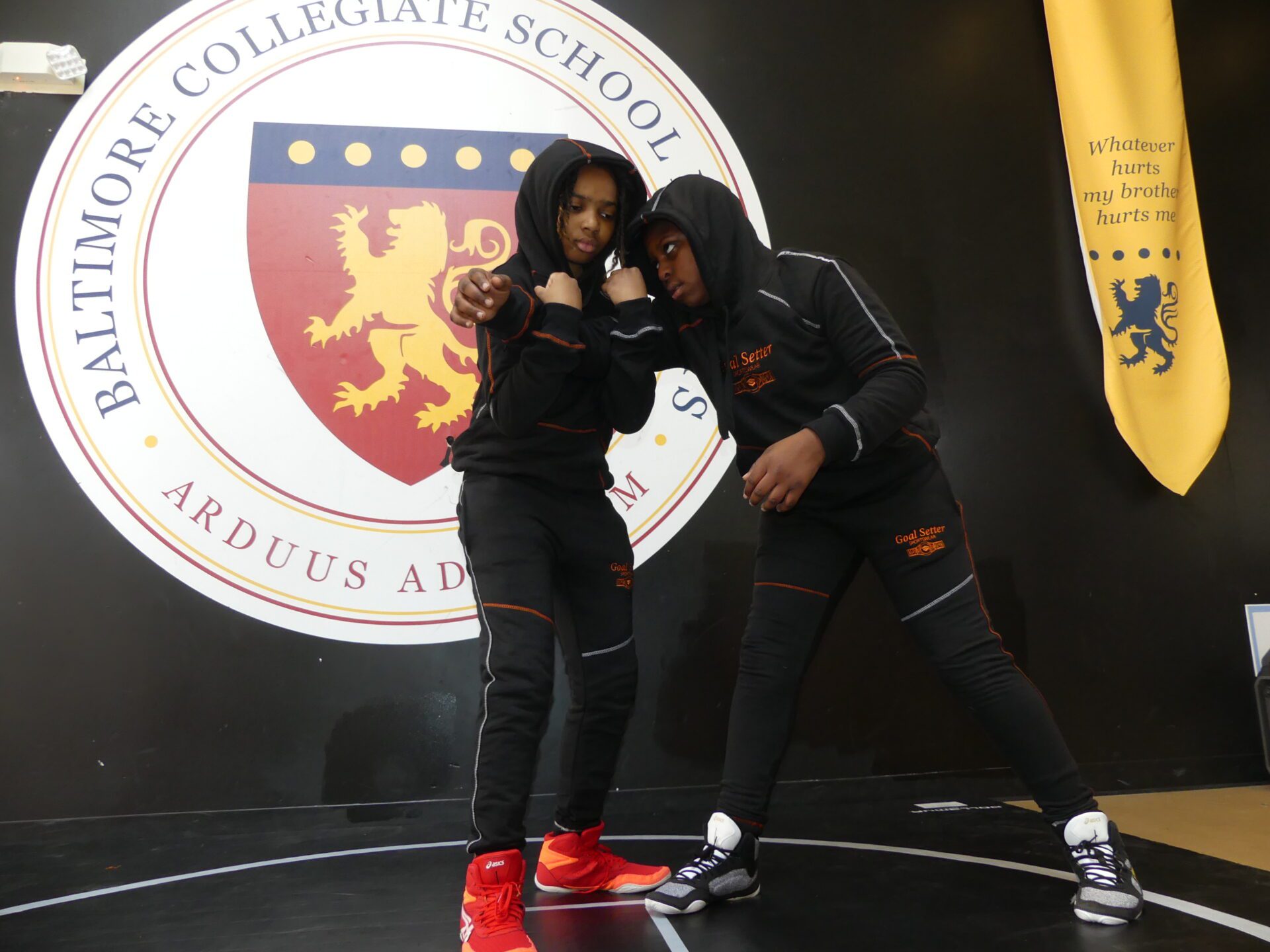- Baltimore Collegiate School for Boys empowers students through extracurricular activities that build confidence, leadership, and teamwork.
- These activities help students develop discipline, creativity, and problem-solving skills, preparing them for future challenges.
- The school’s approach integrates academics, extracurriculars, and personal growth to shape well-rounded, resilient young men.
A great education goes beyond textbooks and exams. It prepares students for life by teaching them skills that cannot be learned in a traditional classroom. At Baltimore Collegiate School for Boys, learning extends far beyond school hours. Extracurricular activities are a key part of the experience, helping boys grow into confident, well-rounded individuals. These programs allow students to develop teamwork, leadership, and discipline while discovering new interests.
A strong academic foundation is important, but students also need opportunities to challenge themselves in other ways. That is why we offer a variety of extracurricular activities, from athletics to the arts.
The Role of Extracurricular Activities in Personal Growth
Let’s see how extracurricular activities shape students beyond the classroom. These programs help build character, improve social skills, and boost confidence. They also teach valuable skills that prepare students for future challenges.
Expanding Social Skills
Students who participate in extracurricular activities interact with peers outside their regular classes. They learn how to communicate, collaborate, and resolve conflicts. These experiences teach them to work with different personalities and adapt to new situations. These skills are valuable in school and later in life.
Building Confidence
Trying something new can be intimidating, but overcoming challenges builds confidence. Whether performing on stage, competing in sports, or leading a club, students gain self-assurance by pushing their limits. Every small achievement strengthens their belief in their abilities, making them more willing to take on bigger challenges.
Developing Leadership Skills
Extracurricular activities give students leadership opportunities. Team captains, club presidents, and event organizers make decisions, take responsibility, and guide others. They learn to manage people, solve problems, and stay organized. These experiences help them grow into confident leaders.
Strengthening Discipline and Responsibility
Students commit to extracurricular activities by attending practice, rehearsing for performances, or preparing for competitions. They manage their time and stay dedicated. This builds discipline and responsibility. They see that effort leads to success and consistency brings improvement.
Encouraging Creativity and Problem-Solving
Many activities encourage students to think differently and find solutions. In drama, students must bring characters to life in unique ways. In music, they experiment with melodies and rhythms. In debate, they learn to argue from different perspectives. These experiences teach them to approach problems with an open mind and develop creative solutions.
Different Extracurricular Activities and How They Help

Learning happens beyond the classroom. Activities outside school hours help students develop important life skills. These experiences build confidence, improve social interactions, and teach responsibility. Students discover new interests and gain valuable lessons that shape their future.
Sports and Physical Activities
Athletics teaches discipline, teamwork, and perseverance. Students who participate in sports stay active and develop strong work habits. Regular physical activity improves concentration and reduces stress. Players learn how to cooperate, follow strategies, and support their teammates. These lessons help them in school and later in life.
Sports also teach responsibility. Players balance training and academics, managing their time effectively. They understand that progress takes effort and commitment. Learning to handle wins and losses prepares them for real-world challenges.
Arts and Creative Expression
Artistic activities encourage creativity and self-expression. Students involved in music, theater, or visual arts explore their imagination and gain confidence. Performing on stage or presenting artwork helps them overcome fear and improve communication skills.
Participating in drama teaches public speaking and problem-solving. Students learn how to express emotions, work with others, and think on their feet. These skills help in many situations, from school presentations to future careers.
Music requires patience and practice. Playing an instrument sharpens focus and improves memory. Students develop discipline by dedicating time to rehearsals and performances. Visual arts encourage attention to detail and originality, helping students think in new ways.
Academic and Skill-Based Clubs
Some students want to explore subjects beyond the classroom. Academic clubs provide an opportunity to deepen knowledge and develop critical thinking. Math and science clubs challenge students with competitions and experiments. They solve problems, analyze data, and apply logical reasoning.
Debate clubs help students think quickly and build strong arguments. Public speaking improves confidence and teaches them to express ideas clearly. Writing programs strengthen storytelling and analytical skills, improving their ability to communicate effectively.
Technology and coding clubs introduce students to programming and innovation. Learning these skills prepares them for future careers and develops problem-solving abilities. These activities challenge students to think creatively and find solutions.
Community Service and Volunteering
Helping others teaches responsibility and compassion. Community service projects show students the importance of making a difference. Many participate in local clean-ups, food drives, and mentorship programs. These activities develop leadership skills and teamwork.
Volunteering also broadens perspectives. Students engage with different communities and gain a better understanding of social challenges. They see how their efforts create an impact, motivating them to contribute in meaningful ways.
The Balance Between Academics and Extracurriculars
Some believe that extracurricular activities take time away from schoolwork. The reality is different. These activities help students stay focused, manage responsibilities, and improve performance. When students find the right balance, they succeed in both areas.
Learning to Manage Time
Handling schoolwork and extracurriculars teaches students how to plan their day. They learn to prioritize tasks, set goals, and meet deadlines. A packed schedule forces them to stay organized and avoid distractions. These skills prepare them for future responsibilities.
Students who manage their time well complete assignments without feeling overwhelmed. They understand when to study, practice, and take breaks. This habit leads to better concentration and improved results.
Strengthening Academic Skills
Research shows that students involved in extracurriculars often perform better in school. Activities like debate, music, and sports sharpen critical thinking. They improve memory, problem-solving, and creativity. These skills make it easier to grasp new concepts in class.
Team-based activities teach cooperation and leadership. Students who work in groups learn how to communicate effectively. They ask better questions, contribute ideas, and participate actively in discussions. This confidence translates to academic success.
Staying Focused and Reducing Stress
Nonstop studying leads to burnout. Taking time for activities outside the classroom helps students recharge. Playing sports, creating art, or volunteering gives them a mental break. They return to their studies with a fresh mind and better focus.
Engaging in hobbies also reduces anxiety. Physical activities release stress, while creative outlets provide relaxation. A balanced schedule keeps students motivated and prevents exhaustion.
Developing a Strong Work Ethic
Juggling academics and extracurriculars teaches responsibility. Students commit to schedules, practice regularly, and meet deadlines. They see how effort leads to progress. This mindset helps them excel in school and prepares them for future careers.
How Baltimore Collegiate School for Boys Supports Student Growth
Education goes beyond textbooks and tests. Baltimore Collegiate School for Boys creates an environment where students can explore interests, build skills, and grow into well-rounded individuals. Extracurricular activities play a key role in shaping their experiences.
Personalized Guidance for Every Student
Smaller class sizes allow teachers to understand each student’s strengths and interests. With more one-on-one interactions, students receive the support they need to find the right activities. Whether they enjoy sports, the arts, or academic clubs, they get the encouragement to explore and develop their talents.
A Wide Range of Opportunities
Students have access to various programs that go beyond traditional academics. Sports teams teach teamwork and discipline. Arts programs inspire creativity. Debate clubs sharpen critical thinking and communication. These activities help students build confidence and discover new passions.
Each program is designed to challenge students while keeping them engaged. They are encouraged to try different activities and push beyond their comfort zones. This exposure helps them develop resilience and adaptability.
A Culture of Support and Growth
Stepping into a new activity can feel overwhelming. That is why the school fosters a culture where students feel supported. Teachers, mentors, and peers create an encouraging atmosphere where students take risks and learn from experiences. This approach builds confidence and independence.
Students also see the value of perseverance. Whether practicing for a competition or perfecting a performance, they learn that progress comes with dedication. This mindset carries over into their studies and personal lives.
Preparing for the Future
The skills students gain in extracurricular activities prepare them for challenges beyond school. Time management, leadership, and teamwork are lessons they will use throughout life. They leave the school with not just academic knowledge but also the ability to think critically, solve problems, and work with others.
Preparing Students for the Future
Success in life requires more than academic knowledge. Extracurricular activities help students build real-world skills that will serve them in college, careers, and beyond. Critical thinking, teamwork, and adaptability are qualities that set individuals apart.
Colleges and employers look for students who can manage responsibilities, lead initiatives, and contribute to their communities. Participating in extracurricular programs teaches resilience, problem-solving, and communication—skills that matter in every field.
Students also develop a strong sense of independence. Whether organizing events, competing in sports, or working on creative projects, they learn to set goals and follow through. These experiences prepare them for the demands of adult life.
At Baltimore Collegiate School for Boys, education extends beyond the classroom. Students gain real-world skills, build confidence, and develop leadership abilities through a variety of extracurricular activities. If you want to see how Baltimore Collegiate School for Boys empowers young men to succeed, visit baltimorecollegiate.com to learn more.


